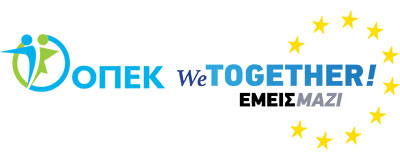SCHOINAS: The European Union in search of a geopolitical regulatory role
16/11/2023
“A new political era has come for the European Union after the Russian invasion in Ukraine and the war in Gaza: the pursuit of a strong geopolitical Union with strategic autonomy, a regulator of stability in the unpredictable and complex modern world.”
The above position was expressed by the Vice-President of the European Commission, Margaritis Schinas, in an open online dialogue on “Quo Vadis Europe? The unpredictable world and our role”, with the participation of Cypriot citizens. The event took place on the 14th of November, marking the commencement of the European Citizens’ Partnership Programme in light of the European Elections 2024.
The Vice-President stated that there will be an increase in the internal reforms of the EU, confirming Jean Monnet’s quote saying that the EU project “will evolve through crises”. Additionally, he pointed out that over the last five years, the European institutions faced multiple challenges (pandemic, Ukraine, migration, energy). Nevertheless, the EU has proved to be tough and resilient, breaking a number of taboos, such as debt reciprocity, EU decision-making, etc.
Regarding the events that happened on the 7th of October in the Middle East, Mr Schinas admitted that the EU “has not succeeded in its role as a geopolitical player”: “Member States do not always agree, the rule of unanimity applies, sometimes we confuse pluralism with cacophony and we have not found where the world wants us to be…”. He foresaw, however, the intensification of discussions within the EU, in order to become more efficient for the world, using its benefits: diplomacy, trade, technology, quality standards, culture, etc.
M. Schinas assessed that as the European Elections – June 2024 are approaching, much will be decided at the polls by the showdown between the school of “easy solutions” and the school of real, “good solutions”. He then urged citizens to use their vote wisely, taking into account the achievements of the EU that “closed the demons of history in the closet”.
Forthermore, Margaritis Schinas engaged in a dialogue with the audience by answering questions of topical concern. Among other things, he took a stand on the issue of the veto override (the unanimity rule) which was of major concern for the 27 leaders in Berlin: “I belong with the people that think that veto is an obstacle and does not guarantee or protect the Member States of the European Union. On the contrary, once a member state wants a veto, it is as if it admits defeat. The abolition of the unanimity rule will create conditions for synthesis and collective decisions with which everyone will want to agree, without the desire to crush the position of the weaker party…”, he said.
The Vice-President of the Commission congratulated OPEK on the implementation of the project, and mentioned that he aims to develop participatory democracy, critical thinking and the production of positions on issues of main concern to European citizens and societies.
